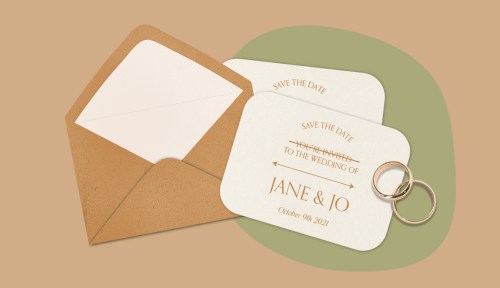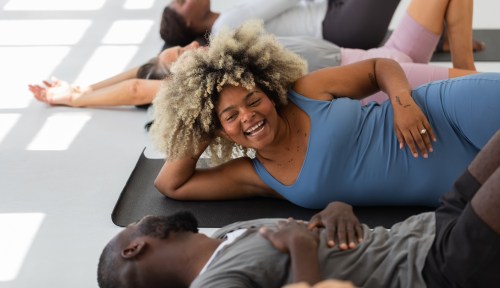If you were in the midst of planning a big wedding bash when COVID-19 began rapidly spreading, there’s a good chance your plans for the day took a turn one way or another. According to a survey conducted in March 2021 by wedding planning platform Zola of 1,400 people who were engaged when the pandemic hit, of the 83 percent who reported changing their wedding plans, 41 percent delayed or rescheduled. If you fall into that camp, now that over a year has passed since the onset of lockdown, it’s possible that you’ve entirely re-prioritized what’s important to you for your event. Or, more specifically, whom you deem important to be by your side during it. Well, good news: You’re absolutely not locked in to your pre-pandemic wedding guest list—and it makes sense that you may want to disinvite certain wedding guests, given how much has changed.
Experts in This Article
Alison Hotchkiss is the principal of Bay Area event planning and design firm, Alison Events.
spoken word poet, author, and speaker
friendship coach, author of Fighting for Our Friendships, and host of the Friend Forward podcast
Jenna Lam is the founder and director of wedding and event design boutique, Jenna Lam Events, based in San Francisco.
professor, speaker, and author of Platonic
“When we think about this past year and all the things that happened culturally and societally—including the pandemic, the presidential election, Black Lives Matter—it’s easy to see why our priorities and perspectives may have shifted,” says friendship expert Danielle Bayard Jackson. At a broad level, we experienced collective and, in some cases, personal traumas, which could have you re-evaluating the importance and role of any aspect of your life, wedding included.
During a recent Well+Good TALK focused on recharging our well-being post-quarantine, spoken-word poet, author, and speaker Arielle Estoria described her and her now-husband’s decision to forego the reception they had initially planned as setting a boundary. They got married on the beach in the company of just their families, and sent out a final note to everyone they had previously invited saying, “We’re actually not planning to have an event anytime soon, and we look forward to seeing you as a married couple.” Estoria said, “We set that boundary because we had the thought of, ‘What if we don’t want to invite the same people anymore?’ And that’s because this last year has really pushed us to an intimacy with a smaller group of people that just hits different.”
The sheer fact that you may not have seen many of the people on your initial wedding guest list since the “before” times could be enough to create that mental distance, according to psychologist and friendship expert Marisa G. Franco, PhD: “If you have a lot of companionate friends—the ones who you mainly use to do things with, like to go to the movies or a sporting event—this extended period of time where you weren’t able to do those things may have flattened some of those connections.” Naturally, in that case, you may no longer feel so inclined to include these companionate, or casual, friends in your wedding.
On the flip side, however, being in quarantine may have actually cultivated even tighter bonds among your innermost circle of friends—the ones who you were able to see, even sporadically, during the past year. “The pandemic was a portal for intimacy and vulnerability,” says Dr. Franco. So, while you may have felt ties loosen with certain outer-circle friends, you also may have grown closer with others during quarantine—some of whom may not have even been on your wedding guest list the first time around. After all, it’s been well over a year since life as we knew it changed.
“When we go through times of tragedy and we share our feelings about it and we ask for support, that actually is a strong bonding agent in friendships,” says Dr. Franco. “It tells our friends that we trust them, and it reveals deeper sides of ourselves, giving our friendships a clear sense of purpose.” As a result, you may have experienced a “sort of cleaving,” she says, “where your closest inner network got even closer and your casual friends really drifted away.”
“A lot of us had time during the pandemic to reflect. We got more in touch with what matters to us.” —Danielle Bayard Jackson, friendship expert
That new gulf between your friendships may make shrinking or changing your wedding guest list feel like a necessity, as can a broader realignment of your energy post-quarantine. “A lot of us had time during the pandemic to reflect,” says Jackson. “We got more in touch with what matters to us, so now, we might start thinking about what we really want to return to in this new normal. We have only so much energy to give, and we’re having to be intentional with how we want to spend that coming out of quarantine.”
The same can be said for spending money for a large event, too. For many, the pandemic triggered financial loss by way of business closures, and for others, the uncertainty of the situation threw spending and saving priorities into an entirely new light. In the aforementioned Zola survey, 29 percent of respondents said financial burdens from the past year rendered their original wedding reception plans less realistic. Shifting to a smaller event with fewer guests is an easy way to reduce the cost of your wedding, without sparing the details that matter most to you, says wedding planner Jenna Lam.
But even if you’ve decided to switch to a smaller event—whether because your friendships, priorities, finances, or all of the above have changed—disinviting folks from your wedding can feel like a socially uncomfortable thing to do in practice. It’s important to note, however, that no matter how awkward it feels in the moment, it may very well be the right call for you.
To stay grounded in your decision to disinvite certain wedding guests, Lam suggests having faith in your own resilience and the grace of your network. “You may find that for a lot of your friends, rather than feeling slighted by the situation, they’ll actually put it in context and be more understanding than you might think,” she says. By this point, all of us are used to plans changing, she adds, so that’s another reason why you may expect less pushback from a rescinded wedding invitation post-quarantine than you may have otherwise expected. Even so, it’s wise to go about disinviting with particular empathy and compassion for how these friends may perceive your decision.
Here are 4 tips for how to disinvite wedding guests in the least cringe-y way possible—without ruining the relationships in the process:
1. Be upfront and honest, without feeling the need to over-justify.
As soon as you have your new plans firmed up, develop a plan of action for informing everyone on your original list, whether they’ll be included or not, says Lam. For the people whom you’re disinviting, if you consider them somewhat close to you, it’s best to break the news in person, or if that’s not feasible, over the phone, says Jackson. And in either case, if you don’t hear back, reiterate the information, as it’s very possible for someone to miss a text or an email, says wedding planner Alison Hotchkiss.
In your communications, aim to be brief, rather than over-explaining. “I would de-personalize and focus on how the situation has changed,” says Jackson, “and say something like, ‘This was a hard decision, and we feel a little embarrassed about having to do this, but unfortunately, we’ve had to change our arrangements.’” Letting people know that this decision was difficult for you from the jump is a great way to gain their sympathy.
Hotchkiss recently worked with a couple to replan their Napa, California, wedding multiple times after the pandemic first derailed their itinerary and then their original venue burned down. “The note that we sent out to wedding guests was along the lines of, ‘We’ve had to pivot and find a new venue with a new date, and as a result, we won’t be able to include everyone whom we had originally wished to celebrate with.’” Thankfully, in this case, the couple who had to change plans found even their disinvited friends understanding, says Hotchkiss.
2. Include a concession.
Adding something to absorb the pang of rejection is a move of kindness, says Jackson: “You can let them know that you look forward to seeing them in the future, and make a plan for an upcoming social gathering. That shows them that your decision is not personal, and you do want to maintain the friendship.” Dr. Franco also suggests sending a handwritten note and including a small trinket. “With any situation that can be perceived as rejection, including a gift is a good way to soften the blow,” she says.
3. Be emotionally prepared for negative responses.
Not all your friends will respond well—and especially, not right away—and that’s okay. “Feeling guilty doesn’t necessarily indicate that you made the wrong decision,” says Dr. Franco. “There’s no definitive way to avoid guilt, which is why acting with intention from the start, so you’re clear on your purpose and your thinking, can help you later on. That way, you can say, ‘Okay, I know I feel guilty right now, but I also understand that there’s a reason I made this decision to begin with.’”
4. Make yourself available to your friends.
Just as you had time to mull over your decision, your friends may need time to process it, too. Some of them might have an initial reaction of surprise or even anger, says Jackson, but it’s important to extend the same grace to them as you’re asking them to do for you. “They’re trying to make sense of their potential new role in your life,” Jackson says. “Let them process feeling hurt or rejected, and give them time to come around to your decision.”
And during that time, ensure you’re making yourself available to disinvited friends by responding readily to texts and calls. “Since these were people whom you’d invited initially, you do owe them the dignity of a response should they have follow-up questions,” says Jackson. This will help provide them with additional reassurance of your friendship. “Some of them might come around right away, and others might come around in a year,” says Jackson.
It’s also okay if a few of the folks on your list never come around to your decision. “I think when it comes to peeling off some friendships, the opportunity or the offering baked in there is that you’re going to have more time to intentionally spend with people that bring kindness into your life,” says Dr. Franco. And because you’re not spread as thin, you’ll be able to build even more intimacy with them.
Oh hi! You look like someone who loves free workouts, discounts for cult-fave wellness brands, and exclusive Well+Good content. Sign up for Well+, our online community of wellness insiders, and unlock your rewards instantly.
Sign Up for Our Daily Newsletter
Get all the latest in wellness, trends, food, fitness, beauty, and more delivered right to your inbox.
Got it, you've been added to our email list.











